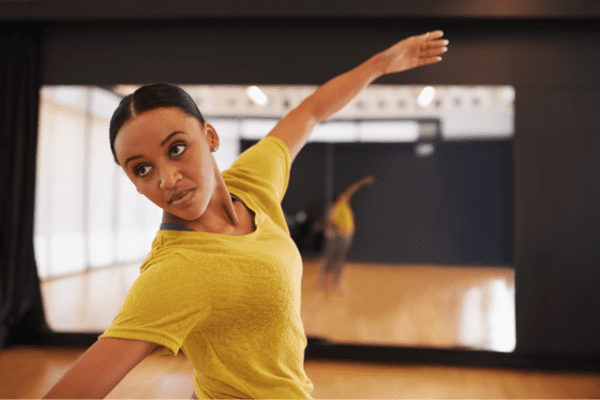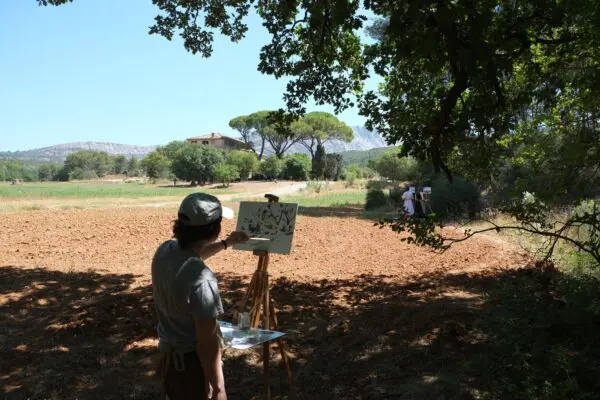
Barcelona, Spain
Fashion Design – Junior
When:
14 July - 25 July 2026
Credits:
10 EC
Read more
Performing Arts, Creative Arts and Design
When:
16 July - 21 July 2018
School:
International Summerschool Bauhaus Denkmal Bundesschule Bernau
Institution:
Handwerkskammer Berlin
City:
Country:
Language:
English
Credits:
0 EC
Fee:
590 EUR

The stage at the Bauhaus Dessau was a legendary site for experimentation, located inside the Bauhaus building’s main space. Here, Bauhaus teachers and students addressed and explored “the mechanical and organic body in the context of space, movement, form, color, light, and sound.” Almost 100 years after the premiere of The Triadic Ballet, we are ready to investigate the theme of mechanical and organic bodies from a new perspective. In the original Triadic Ballet, actors wore costumes, transforming themselves into mechanical bodies, and moved about the stage based on a man-made choreography.
In our course, we will develop a choreography for a set of mechanical bodies: the AmoeBa. Envisioned as an installation at an early stage of development, AmoeBa consists of small robots that move around a defined exhibition space and interact with visitors. Defined parameters include the shape of the mechanical bodies, the PCB sensors/actuators, and a “playground”—all other parameters are free and open-ended. The course examines human and animal behaviors (based on the historical theory of the four temperaments), analyzing and converting these into visual abstractions and implementing the results as movement patterns. We will reflect on our own behavior and movement patterns, learn to write code for the robots, entertain the ideas of an era where human personalities were classified into choleric, sanguine, phlegmatic, and melancholic types, and explore how the relationship between the mechanical and organic body has evolved over the last hundred years.
Daniele Bortolotti (*1984, lives and works in Berlin) holds a Ph.D. (cum laude) in Electrical Engineering from the University of Bologna. Holger Friese (*1968, lives and works in Bernau bei Berlin) is a visual artist and graphic designer.
Best suited for: anyone with a background in art or computer science, or more broadly, anyone who is interested in human-machine interactions and wants to share their theoretical or practical expertise with the course and other participants. The course is seen as a mix between playing god and being a test subject.
The course examines human and animal behaviors (based on the historical theory of the four temperaments), analyzing and converting these into visual abstractions and implementing the results as movement patterns. We will explore the relationship between the mechanical and organic body.
Fee
590 EUR, The participation fee is 590.00 EUR per one-week course. The participation fee includes: Registration fee of 160.00 EUR (this amount is not refundable) Course fee of 430.00 EUR The course fee includes lunch and dinner (Mon-Sat) as well as the preliminary course and all evening events. For several courses we might have to charge an additional materials fee, please see the specific course page for the exact total price.
Fee
220 EUR, Accommodations We also offer you the possibility of overnight accommodations including breakfast at the Bauhaus landmark. The cost of the accommodations depends on your room selection: 220.00 EUR for a seven-night stay in a double room / breakfast 310.00 EUR for a seven-night stay in a single room / breakfast The accommodations gains also access to the local swimming pool. We recommend attending the course while staying at the Bauhaus monument since this allows you to take advantage of the Summer School’s extensive evening programming without having to commute daily.
When:
16 July - 21 July 2018
School:
International Summerschool Bauhaus Denkmal Bundesschule Bernau
Institution:
Handwerkskammer Berlin
Language:
English
Credits:
0 EC

Barcelona, Spain
When:
14 July - 25 July 2026
Credits:
10 EC
Read more

Barcelona, Spain
When:
07 July - 25 July 2026
Credits:
0 EC
Read more

Marseille, France
When:
13 June - 19 July 2026
Credits:
0 EC
Read more